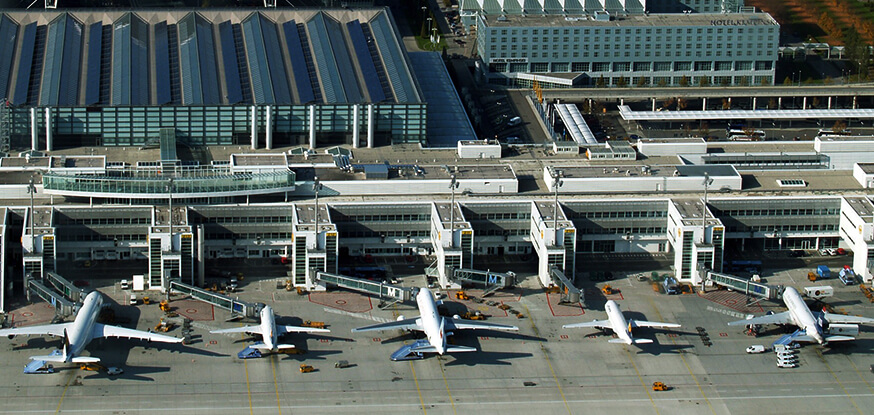Munich Airport has announced it is partnering with German conglomerate Siemens in an effort to work on the digitalization of the airport which includes developing solutions in areas such as mobility, energy management, safety and security.
The strategic partnership between the two entities will see them apply the use of data analytics, artificial intelligence and Internet of Things technologies in order to overhaul and improve the energy efficiency of airport buildings and logistics.
In addition to this, the digitalization will improve the baggage handling system at the airport and the primary objective of the ambitious initiative is to enhance the overall experience for passengers at Munich Airport.
In order to successfully execute these goals, Siemens has announced that it will become a developmental partner for LabCampus, which is the airport's new cross-disciplinary innovation center. The facility allows start-ups, universities, entrepreneurs and research faculties to work together on new technologies.
Chief Technology Officer at Siemens, Roland Busch expressed his delight at the new initiative at Munich Airport and said the partnership represented a great opportunity to enhance the already stellar reputation enjoyed by the airport.
He said, "For airports, in particular, digitalization offers great opportunities for optimizing operations. That's why we, as the worldwide market leader in industrial automation and digitalization, are cooperating with Europe's only five-star airport. In 2017, the London aviation research consultancy Skytrax awarded this status to Munich for the second time."
Siemens has enjoyed a close relationship with Munich Airport for over 20 years and both have collaborated on a number of innovative projects. Siemens Postal, Parcel & Airport Logistics (SPPAL), for example, installed the baggage handling system for terminal 2 and supplied the extension for the satellite terminal that was opened in 2015. This system, which is 45km long, sorts up to 17,800 pieces of luggage per hour.
Last year, the contract for operation and maintenance of the entire system was renewed. In addition, the SPPAL experts are currently working on a new solution for seamlessly tracking pieces of luggage. Here, cameras worn by the baggage-handling staff are to scan the bags automatically - a task that until now has been performed manually in a labor-intensive process. However, their latest initiative promises to be the most innovative of all the projects it has embarked upon.

